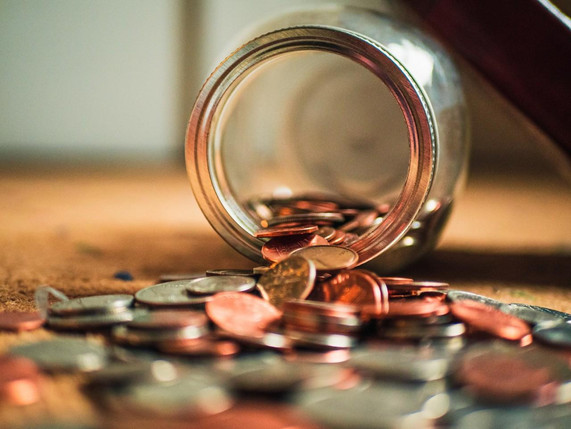
Plumbing repairs and maintenance can be expensive, but there are many ways to save money without compromising on quality. According to HomeAdvisor, the average plumbing repair costs range from $175 to $480, depending on the complexity of the job. However, with careful planning and smart choices, you can keep your expenses under control. Here are eight practical tips to help you save money on your next plumbing service.
- Regular Maintenance
One of the best ways to avoid costly plumbing repairs is through regular maintenance. Just like your car, your plumbing system needs routine check-ups to ensure everything is working properly. Regular maintenance helps in identifying small issues before they turn into major problems. Here's how you can maintain your plumbing system:
- Check for Leaks: Regularly inspect your faucets, toilets, and pipes for leaks. A small leak can waste a lot of water and lead to higher bills.
- Clean Drains: Use a drain cleaner or a homemade solution of baking soda and vinegar to keep your drains clear. Avoid using chemical drain cleaners as they can damage your pipes.
- Inspect Water Heater: Flush your water heater annually to remove sediment buildup, which can reduce its efficiency and lifespan.
- DIY Minor Repairs
Some plumbing repairs are simple enough to handle on your own, saving you the cost of hiring a professional. Common minor repairs include:
- Fixing Leaky Faucets: Usually, a leaky faucet can be fixed by replacing the washer or O-ring.
- Unclogging Drains: A plunger or a plumber's snake can often clear minor clogs in sinks and toilets.
- Replacing Showerheads: If your showerhead is old or clogged, you can replace it with a new, more efficient model.
There are plenty of online tutorials and videos that can guide you through these simple repairs.
- Compare Quotes
Before hiring a plumber, get quotes from at least three different companies. This allows you to compare prices and services, ensuring you get the best deal. Be clear about the work that needs to be done and ask for a detailed breakdown of costs. When comparing quotes, consider the following:
- Labor Costs: This is usually the most significant part of the quote. Check the hourly rate and how many hours the job is estimated to take.
- Materials: Ensure the quote includes the cost of materials, such as pipes, fittings, and fixtures.
- Additional Fees: Some plumbers may charge extra for travel, after-hours work, or emergency services.
- Preventative Upgrades
Investing in preventative upgrades can save you money in the long run by reducing the likelihood of major repairs. Consider the following upgrades:
- Water Pressure Regulator: Installing a water pressure regulator can prevent pipes from bursting due to high pressure.
- New Fixtures: Older fixtures can be inefficient and prone to leaks. Replacing them with new, high-efficiency models can save water and reduce the risk of leaks.
- Pipe Insulation: Insulating your pipes can prevent them from freezing and bursting during cold weather, saving you from expensive repairs.
- Use a Local Plumber
Hiring a local plumber can save you money on travel fees and ensure faster service. Local plumbers are more familiar with the common plumbing issues in your area and can often provide more personalized service. For residents of Glencoe, working with a Glencoe plumber from a trusted company like Mike’s Chicago Plumbing can be a smart choice. They offer reliable and cost-effective services tailored to your specific needs.
- Schedule During Off-Peak Times
Plumbers often charge higher rates for emergency services or work done during weekends and holidays. If possible, schedule your plumbing service during regular business hours to avoid these extra charges. Plan ahead and address minor issues before they become emergencies.
- Buy Your Own Materials
Sometimes, buying your own materials can save you money. Plumbers often mark up the cost of materials, so purchasing them yourself can reduce the overall cost of the job. Make sure to:
- Get the Right Materials: Consult with your plumber to ensure you buy the correct items. Incorrect materials can lead to additional costs and delays.
- Shop Around: Compare prices at different stores and online to get the best deals. Look for sales and discounts on plumbing supplies.
- Check for Warranties and Guarantees
When hiring a plumber or purchasing plumbing fixtures, check for warranties and guarantees. A warranty can save you money if something goes wrong after the repair or installation. Make sure to:
- Read the Fine Print: Understand what the warranty covers and for how long. Some warranties only cover certain parts or types of damage.
- Keep Records: Save all receipts and documentation related to the repair or installation. This will make it easier to file a warranty claim if needed.
Conclusion
Plumbing services in Glencoe don't have to break the bank. By following these eight money-saving tips, you can manage your plumbing expenses effectively while ensuring high-quality service. Regular maintenance, DIY minor repairs, comparing quotes, investing in preventative upgrades, hiring local plumbers, scheduling during off-peak times, buying your own materials, and checking for warranties can all contribute to significant savings.
Remember, the key to saving money is to be proactive and informed. Regular maintenance and timely repairs can prevent costly emergencies.
By implementing these strategies, you can enjoy peace of mind knowing that your plumbing system is well-maintained and your budget is intact.
